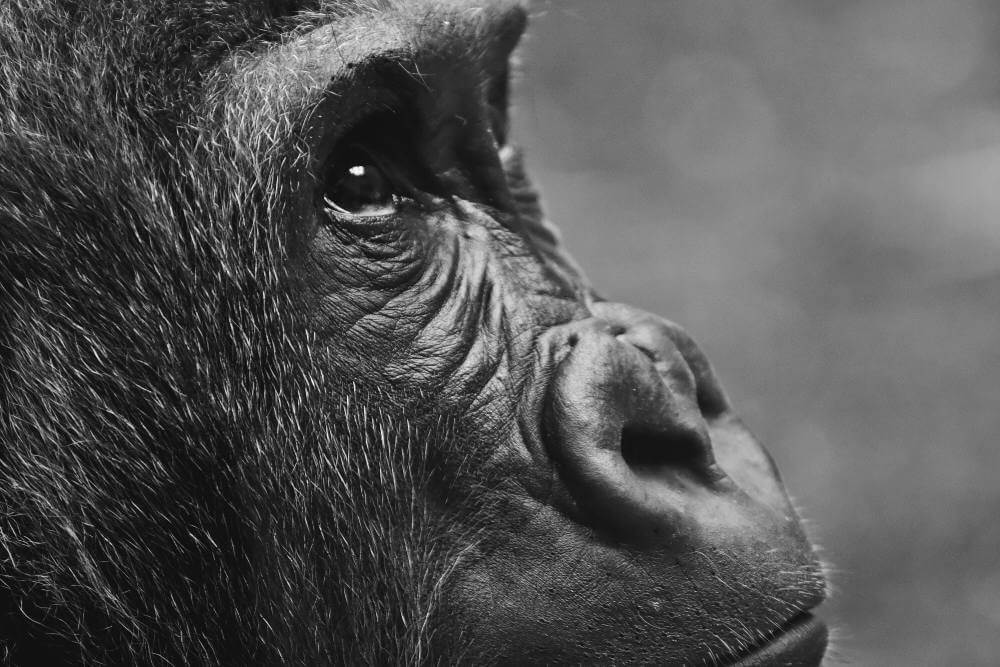Perhaps the most thought provoking book I’ve ever experienced. Every chapter seemed to be a lightbulb experience. I have shared this book, more than any other I’ve read.
Introduction
“Ishmael” by Daniel Quinn is a thought-provoking, philosophical novel that challenges conventional wisdom and encourages readers to question humanity’s place in the world. Published in 1992, it has garnered a passionate following and received numerous awards.
Daniel Quinn: The Man Behind the Message
Daniel Quinn, the author of “Ishmael,” was an American author and environmentalist whose life and personal journey deeply influenced his literary work. Born on October 11, 1935, in Omaha, Nebraska, Quinn’s early life was marked by a thirst for knowledge. He pursued his education at St. Louis University, where he earned a degree in English. After completing his studies, Quinn’s path to becoming a novelist was far from straightforward. He worked in various roles, including as a teacher, editor, and ghostwriter, before embarking on his career as a writer.
He was also in training to become a Trappist monk however was expelled from the seminary for his unconventional thinking which ran afoul of the church.
It was during these years of exploration and self-discovery that Quinn’s unique perspective on the world began to take shape. His experiences, interests, and unquenchable curiosity about human society, ecology, and the interconnectedness of all life on Earth led him to pen “Ishmael.” This novel, written in a Socratic dialogue format, became the culmination of Quinn’s deep reflections and insights, reflecting his quest for understanding the world and the urgent need for change.
The Story of “Ishmael”
“Ishmael” is a novel that takes the form of a dialogue between a nameless narrator and the eponymous character, Ishmael, who is a wise and telepathic gorilla. Ishmael’s unique perspective and wisdom serve as the catalyst for a profound journey of self-discovery and enlightenment for the narrator.
Key Lessons and Takeaways
1. The Taker and Leaver Cultures:
- One of the central themes of “Ishmael” is the distinction between “Taker” and “Leaver” cultures. Takers are characterized by a mindset of domination and exploitation of the Earth, while Leavers live in harmony with nature. Quinn argues that human civilization, particularly in the industrialized world, has largely adopted the Taker culture, leading to ecological and societal problems.
- Quinn’s work highlights the urgent need for a paradigm shift from a Taker mindset to a more balanced, Leaver perspective that respects the environment and all its inhabitants.
2. The Myth of Human Supremacy:
- Quinn challenges the belief that humanity is inherently superior to all other species. He argues that this belief has led to the environmental degradation and ecological imbalances plaguing the planet. Instead, he suggests a more holistic view of our place within the web of life, emphasizing our interdependence with other species.
3. The Importance of Storytelling:
- Ishmael emphasizes the role of storytelling in shaping human culture. Quinn contends that Taker societies are built on a dangerous narrative, which must be rewritten to foster a more sustainable and harmonious world.
- Quinn’s narrative showcases the power of storytelling not only in understanding our current predicament but also in envisioning a more sustainable and harmonious future.
4. Responsibility and Change:
- Quinn does not merely point out the problems but also suggests that humans have the power to change their course. He argues for a shift in consciousness, urging readers to take responsibility for their impact on the planet and adopt a more sustainable way of life.
- “Ishmael” is a call to action, encouraging readers to become aware of their roles in the larger ecological narrative and make positive changes in their lives to contribute to a healthier planet.
5. Paradigm Shift:
- “Ishmael” ultimately calls for a paradigm shift in human thinking. It encourages readers to reevaluate their beliefs, behaviors, and the societal systems that perpetuate ecological destruction. Quinn’s book serves as a call to action for a more sustainable future.
- Through Ishmael’s wisdom, Quinn invites readers to embark on their own journey of self-discovery and positive change, suggesting that by altering our perspectives and behaviors, we can contribute to a more balanced and sustainable world.
Conclusion
“Ishmael” by Daniel Quinn is a remarkable literary work that challenges readers to reexamine their worldview and consider their role in the larger tapestry of life. Daniel Quinn’s personal journey and passion for environmentalism shine through in this engaging and thought-provoking novel. The book offers profound lessons about our relationship with the natural world and the urgent need to reevaluate our societal values and practices.
Through the wisdom of Ishmael, Quinn invites readers to embark on their own journey of self-discovery and positive change. It remains a timeless and essential read for anyone interested in the intersection of ecology, philosophy, and human society, making a compelling case for reimagining our place in the world and working towards a more harmonious and sustainable future.
Check out the podcast episode…
Check out the Happiness 2.0 Podcast – https://podcast.edwardgdunn.com/




